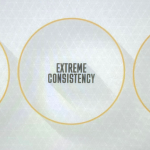How Not to Die a Slow Death in the World of Rural Marketing
There is one word that is a slow-death march when it comes to the effectiveness and ROI of your rural marketing.
And I see it all the time.
The problem is the untrained eye can’t.
The other problem too is most rural marketers are in denial because they are too concerned with being seen as right, than getting there marketing right.
I’m going to let you know what this word is soon.
But before I do let me explain things further.
To be an effective marketer you need to be a student of human psychology.
You have to understand why people buy:
- What makes them make their decisions?
- What are they trying to achieve?
- What are they wanting to signal to themselves or others?
These are just some of the more deeper buyer-focussed questions you need to ask yourself.
When you think about your marketing from your ideal buyer’s world view you’re getting closer to what they are thinking and feeling.
Better still, talk to them and get closer to them. Proctor and Gamble are huge researchers spending millions studying and observing how people use their products and clean their homes.
They had a room freshner product that no one was buying. They had assumed people would use it to apply to their carpets as they cleaned and vacuumed.
They were wrong once they went into people’s home to watch how they were using it.
The product was used only after the cleaning was done with the smell signalling a nice, clean home and a job well done. Like a reward at the end.
The product was called Glade and instead of selling less product, they sold millions more once they cracked the code.
Most marketers obsess about their product’s features and benefits when they should be obsessed about their prospect’s world.
It’s the small details and observations that matter most:
- What irritates them?
- What are they frustrated by?
- What is a common complaint they have that no one fixes?
- Is there a problem no one is solving for them?
You have to get out of your ivory desk-driven, multiple meetings tower.
Talk to your customers and ask them why they choose you, what advice they would have for you, what you could do better and how you could promote to more people like them?
Happy customers will only be too happy to help.
It’s not enough to promote the same looking, same sounding stuff as everyone else as you’re only helping the category and not yourselves.
So back to that one word I mentioned at the start this killing your rural marketing’s effectiveness and return.
Have you worked it out yet and spotted the pattern?
It’s this:
Generic.
Generic, dull and boring marketing and content doesn’t get noticed.
The brain only detects difference. Neurologically if it’s seen the same message or ad it will ignore because it won’t waste its computing power or cognitive energy on something it has seen before.
The buyer’s brain is miserly.
So you have to break your buyer’s automatic guessing, pattern-recognition machine and offer something different.
Something specific.
If there’s one piece of advice I could give you for all your marketing messages it would be the word specificity.
Specificity sells.
Being specific gets to the specific heart of the matter. It’s the granular details that count.
Marketing genius Jay Abraham said it well when he said:
“When you can articulate your market’s problem better than they can they will automatically assume you have the solution”.
He is so right.
So be at pains to present and promote your market’s specific pains.
If you can point to those specific pains, you will have improved the effectiveness of your marketing immeasurably.
Don’t die using safe, boring, dull and generic messaging. It will be ignored.
Specificity is the answer. Now go find it, talk to your customers about it and then go promote it.
You be well rewarded when you do.





